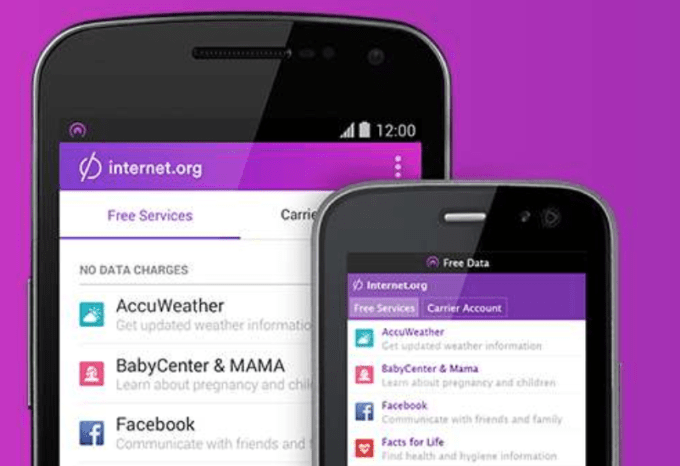Ron Gutman, the co-founder and CEO of HealthTap, a venture-backed medical advice startup, was reportedly elbowed out today by his board of directors. The reason, the board said in a letter to employees, was that it had finally heard too many complaints about Gutman’s behavior inside the company.
Recode published the news of his termination earlier, along with excerpts of an explainer provided to Gutman that alleges he “committed acts of intimidation, abuse, and mistrust, and that [he] repeatedly mistreated, threatened, harassed and verbally abused employees.”
“This leaves us with no choice but to fire you,” reads the letter. “The toxicity you introduced into the workplace ends now.”
The development may seem curious to those who followed Gutman’s earlier career. Back in 2011, Gutman was on the TED speaking circuit, talking passionately about the power of smiling and attracting a great deal of publicity in the process. His 2011 presentation has been watched nearly five million times; it later spawned a book, published by TED, called Smile: The Astonishing Powers of a Simple Act.
Gutman, a Stanford grad, has denied that he abused his employees in a public statement that reads: “The actions of the VCs are harmful to the Company and in violation of their duties. I will not stand for their effort to take control of the Company unfairly and to the detriment of the Company. I will continue to fight for HealthTap and for all of our employees, our customers and our users all over the world. My team and I remain committed to saving lives and help people live healthier happier longer lives.”
It’s not the first time that Gutman has found himself at the center of a controversy.
Nine years ago, Gutman sold an earlier startup of his, Wellsphere, to a much larger (and, for a minute, publicly traded) rival called HealthCentral, which at the time was a collection of consumer health and wellness information.
Terms of the deal were never disclosed, but plenty of complaints surfaced after the sale, by bloggers who claimed that Wellsphere had tricked them into agreeing to an “irrevocable, perpetual license” to use, make or sell whatever content they had posted to the company’s website. Why they found this so galling: To grow its “well” of content into something sellable, Wellsphere reached out to more than 1,700 medical bloggers, appealing to their self-perception as “true medical experts” and inviting them to publish even their previously posted material to its platform.
Gutman founded HealthTap the very next year, in 2010.
What happens to the company now is a bit of a question mark. HealthTap has raised nearly $40 million over the years, including from Mohr Davidow Ventures, Khosla Ventures, Mayfield and Eric Schmidt’s Innovation Endeavors. But it hasn’t raised fresh funding in five years — a sign, oftentimes, that investors aren’t prepared to throw more money at a company.
For now, says Recode, Gutman is being replaced by Bill Gossman, a software CEO whose LinkedIn profile shows that he also has been a longtime venture partner with Mohr Davidow. In the board’s letter to employees, it calls Gossman “the right leader for the company at this time.”
You can read the board’s letter in its entirety below:
Dear HealthTap Team,
The Board of Directors has decided to make a change in company leadership. As of this morning, Ron Gutman is no longer the President and CEO of HealthTap, nor is he employed by the Company in any capacity. He is also no longer a member of the Board of Directors.
After receiving concerning reports by employees about Ron’s conduct as CEO, the Board of Directors hired an outside law firm to conduct an investigation into these allegations. What we learned left us with no choice but to make this change, and we did so after taking the necessary steps from a corporate governance perspective.
Last evening the Board voted to appoint Bill Gossman as CEO and also elected him to the Board of Directors. He begins his position immediately. Bill is a tenured executive with a wealth of experience in enterprise software, consumer internet and mobile applications. Those of us who have worked with Bill in the past have witnessed his transparent, empowering leadership style, and we firmly believe he is the right leader for the company at this time.
There will be an all-hands meeting this morning at 9:30AM in Palo Alto, where you will get to meet Bill and hear about his near-term plans for the Company. You will also hear from the Board. We ask that employees in the San Francisco office join by video conference if they are unable to attend the meeting in person.
We are confident this change is the right thing to do and in the best interests of the Company. We want HealthTap to offer an atmosphere where employees are treated professionally and respectfully – and where they are rewarded for their contributions. We believe that by working together under Bill’s leadership, we can achieve HealthTap’s full potential.
Thank you for your continued hard work and dedication to HealthTap.


